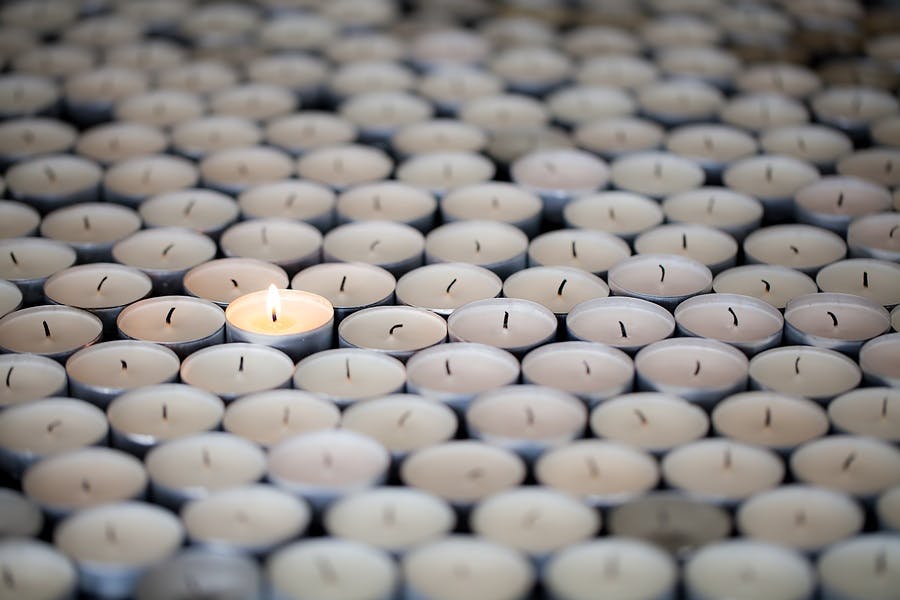“I got more of a kick out of being one of the founders of the YMCA in Midland, Texas back in 1952 than almost anything I’ve done.”
This from a man who was a decorated Naval aviator who nearly gave his life in World War II, was Commander-in-Chief of the Armed Forces and held plenty of posts along the way: ambassador to the United Nations; director of the Central Intelligence Agency;. Chief of the Liaison Office in China; Vice President of the United States, and lastly President.
When President George H.W. Bush passed away in November, we heard many tibdits about the man that that gave us insight to his true character.
My thought as I read that first sentence of this column was WOW! Here was a man who achieved much in his life – and not only in public service, but in business. His accomplishments would fill pages of a CV. But to him the key accomplishment was opening a YMCA.
He gave up a first-class seat
There was another article that I came across last month about a first-class passenger exchanging his seat with a mother and her sick child who were on their way to a Philadelphia hospital.
Taking the Good Samaritan up on his offer gave both mother and daughter extra breathing room, so to speak. Overwhelmed, Kelsey Zwick “Cried my way up the aisle while my daughter Lucy laughed!” she wrote in a Facebook tribute to her benefactor. “She felt it in her bones too… real, pure, goodness. I smiled and thanked you as we switched but didn’t get to thank you properly.”
When she finally connected with Jason Kunselman, Zwick said, “He was thanking me for a birthday to remember. It was the best day. He said it made him and his wife cry, and he said, ‘I am so glad we were on the same flight.’”
Many of us have given back in our lives, not for accolades but because in life if you want to feel rich, help somebody who can never give back to you. My greatest joy has always been after helping someone. The self-pat on the back for a job well done is unmatched.
What is your measure?
For personal growth, your accomplishments should be measured by the value of what have you done to help someone. I remember my father telling my mother numerous times to write a check for some family that had fallen on hard times. He was a hard-nosed businessman but, without fanfare, he was always there for people and the only ones who really knew about it was my mom and the recipient. As I overheard those conversations, I thought to myself as to how nice that was for him to help.
Organizations today are now learning from the “do good for society” model. Marc Benioff, the Salesforce CEO, has escalated his attacks on fellow San Francisco billionaires, saying they are “hoarding” money and don’t want to help society.
Benioff’s recent efforts to call out ultra-wealthy business leaders has caused divides in the tech industry, which has typically been united in its resistance to taxes that could fund services and combat income inequality.
Profits are not enough
BlackRock CEO Larry Fink sent a letter to CEOs of public companies last year telling them that their responsibility not only to deliver profits, but also to make “a positive contribution to society.”
“Without a sense of purpose, no company, either public or private, can achieve its full potential. It will ultimately lose the license to operate from key stakeholders.” – Larry Fink
In his letter, Fink lays out a number of requests which one might find surprising from a $6 trillion asset manager. Even more electrifying, however, was Fink’s call for CEOs to seize the mantle of leadership in making the world a better place, beyond simply delivering profits. He sees governments as failing in its duty to address the major challenges that loom in the future: “As a result, society is increasingly turning to the private sector and asking that companies respond to broader societal challenges.”
He cites environmental impact, workforce diversity, community engagement and employee re-training as among the larger issues companies must grapple with. The reason Fink’s letter is so striking is that it goes straight to the heart of a raging debate about the role of social purpose in an organization’s agenda. One side argues that embracing purpose is not only essential to developing resonant customer relationships, but it also drives better corporate performance. The opposing debaters believes that social causes are for one’s private life and that the purpose of business is to drive profits.
I see it as both: Organizations must embrace this initiative within their sphere of influence, and we as individuals must also look for ways we can make a difference, even if it is a minute gesture like giving up an airline seat.
What is your narrative?
At one of my former jobs as VP of human resources at Martha Stewart, we gave employees two days to volunteer. Our mantra was that we want everyone to give back to society in some way. Our onboarding program, for which we won an award, was based on that concept.
Throughout an employee’s first day the presentations were sprinkled with videos and testimonials of our employees volunteering in a high school that we adopted. We adopted a senior citizens home and would decorate their common space at holidays. We thrived on giving back.
So as we enter into this new Age of Aquarius, we must begin to realize we all can make a difference. As George Bush said, good works “can spread like stars, like 1,000 points of light” as we give back.
When was the last time you did good? It’s a feeling you can’t purchase.
